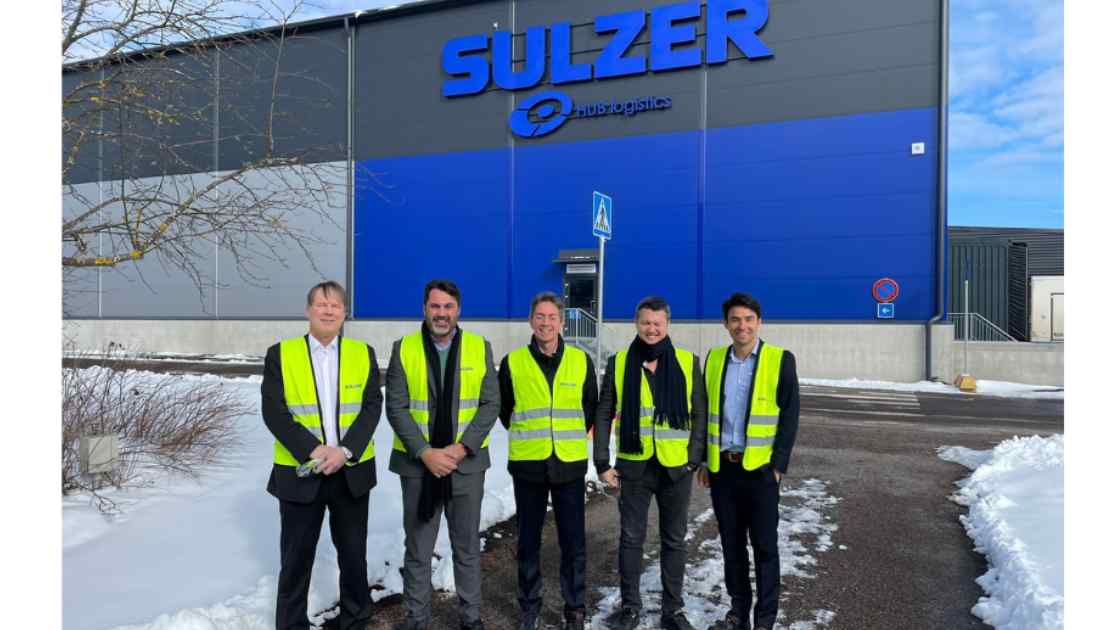Brazil’s largest producer of ethanol from sugarcane waste is making significant investments. Razen has selected Sulzer as a key technology supplier for the construction of 20 second-generation processing facilities over the next seven years.
Ethanol produced from crop waste fermentation has become the world’s most widely used and important biofuel. It is now common practice in many markets around the world to mix a small amount of ethanol into gasoline, which helps reduce the carbon footprint of road transportation. Energy companies intend to go even further, developing fully renewable biofuels that can be used as drop-in replacements for their fossil-based counterparts. Shell, for example, has used bioethanol as a key ingredient in the 100% renewable race fuel that it supplies to the NTT IndyCar series since 2022.
Razen, a joint venture between Shell and the Brazilian sugar and energy conglomerate Cosan, produces around 2.5 billion liters of ethanol from sugarcane in a network of plants across the country. With global demand for bioethanol expected to grow at a rate of more than 14% per year, the company is expanding its production capacity by introducing new second-generation ethanol (E2G) technology.
ENERGY FROM WASTE
While Razen’s conventional bioethanol plants use raw sugar cane as their primary input, E2G facilities are designed to process bagasse, the waste material left over after the production of sugar or ethanol from cane. Using bagasse to make ethanol has the potential to increase overall yield by 50%, and this ethanol has a lower carbon footprint than conventional products, emitting 97% less greenhouse gas than gasoline.
Sulzer, a global pump specialist, has worked with Razen on pumping requirements for E2G technology for over two decades. The company provided a variety of pumps for pilot plants, and the engineering teams of the two companies collaborated closely to solve the complex technical challenges involved in converting bagasse into useful fuel.
The processing of sugar cane waste on a large scale is extremely demanding. Bagasse is a very fibrous material, and the hot slurries used in bioethanol production are also very acidic. They also have a high concentration of abrasive sand. These conditions, when combined, make for extremely difficult handling: Pumps, pipes, and valves in E2G plants are prone to clogging, corrosion, and premature failure.
DEMANDING ENVIRONMENT
Sulzer drew heavily on its experience in other demanding industry sectors to create pump designs that could meet the needs of the new E2G facilities. The fibrous nature of bagasse slurry resembles materials used in the pulp and paper industry, for example. Sulzer has also developed a number of specialized materials and coatings to improve pump durability in corrosive and abrasive environments such as those found in the mining and metals industries. Another top priority for Razen was energy efficiency, which necessitated meticulous attention to the hydraulic design of the entire system.
All of this experience was critical in helping Sulzer win a competitive tender to supply pumps to Razen’s production sites as the E2G project progressed from development to commercialization. Sulzer’s MCE/WPP pumps in special metallurgy and AHLSTAR A pumps for general process and utility applications are included in the final scope of supply.
In addition to the strategic partnership, Sulzer has been recognized for accomplishments in areas that align with Raizen’s corporate values. Sulzer was recognized among the thousands of companies in Raizen’s vast supplier network for leading by example in embracing environmental and social governance (ESG) values. The award is a significant acknowledgement of Sulzer’s corporate responsibility efforts.
ONGOING SUPPORT
Aside from the pumps’ proven technical capabilities, Razen sees several benefits in sourcing all of the major pumps for the E2G project from Sulzer. The contract has streamlined procurement for the new project and allows the facilities to keep spare parts inventories to a bare minimum. The AHLSTAR is a multi-role pump with a modular design that allows it to be tailored to specific applications.
To ensure availability, the Sulzer Industry team in Brazil will provide maintenance and spare parts support for each facility. These capabilities will be critical to the E2G plants’ successful operation.
About Sulzer
Sulzer is a world-class manufacturer of fluid engineering and chemical processing equipment. For fluids of all types, we specialize in energy-efficient pumping, agitation, mixing, separation, purification, crystallization, and polymerization technologies. Our solutions enable carbon emission reductions, polymer development from biological sources, plastic waste and textile recycling, and efficient power storage. Through our responsive network of 180 world-class manufacturing facilities and service centers around the world, our customers benefit from our commitment to innovation, performance, and quality. Since 1834, Sulzer has had its headquarters in Winterthur, Switzerland. Our 12’900 employees will generate CHF 3.2 billion in revenue in 2022. Our stock is listed on the SIX Swiss Exchange (SIX: SUN). www.sulzer.com



